- Home
- Helen Dunmore
Birdcage Walk Page 7
Birdcage Walk Read online
Page 7
‘How I should love to see an alligator king,’ I said.
‘I would rather see the King of the Siminole and all his chiefs,’ said Mammie. ‘What a man he must be. See him stretch out his arm as he says to Bartram: “Our whole country is before you, where you may range about at pleasure.” Do you think that our own King would be as magnanimous, Lizzie?’
I laughed. ‘Farmer George has no alligators. He is a dull fellow.’
‘It must be a fine thing,’ said Mammie, ‘to gather new physic plants and learn their use. Bartram is taking specimens and seeds wherever he goes, and they will be sent back to London for examination. He hopes to propagate many new species here.’
‘I’m glad to hear it,’ I said, ‘otherwise one might almost think, from his description, that he was travelling for enjoyment.’
‘But imagine how many diseases may be cured one day, by such plants.’
The word ‘disease’ stuck to my mind like a burr. Perhaps Diner was really ill, and I had been hiding it even from myself. Sweats – chills – shaking: even if it was not ague, there were many serious diseases which began in such a way—
‘What is it, Lizzie?’
I thought of passing it off, but I had hidden too much from her lately. ‘I’m afraid that Diner isn’t well,’ I said. She listened with an eagerness which meant more to me than any speech as I told her about his symptoms.
‘I feel sure it is nothing,’ she said firmly. ‘He looked as well and strong as ever when I saw him last Sunday.’
‘But then why should it happen?’
‘Perhaps he has bad dreams. One can wake in a sweat from a nightmare.’
I had thought of that already, but it hadn’t convinced me. Diner lived in the daylight world of building, land and money. His imagination went into stone. I couldn’t believe him plagued by nightmares like a character from one of Mrs Radcliffe’s novels.
‘You might ask him whether anybody else in his family was troubled by such symptoms. His father, perhaps.’
‘How can I ask him that? He is not even aware of what happens. In the morning he remembers nothing of it.’ And besides, Diner rarely spoke of his family, and when he did it was to recall instances of such brutality in his childhood that I quickly changed the conversation.
‘Perhaps he needs to be told,’ said Mammie in the gentle voice she used for her most determined ideas. The vertical crease in her forehead deepened. She looked older because of her pregnancy, and it frightened me. I knew that she also looked older because she was anxious for me, and had been anxious ever since Diner and I had married, although she tried to conceal it. He was not the man she had imagined for me, if she’d imagined anyone at all. A spurt of anger set me back. She had had two husbands. Did she think that another Augustus would satisfy me? Or was I to become a second Hannah Rougemont, the handmaid of a woman whose brain ran faster than her pen? My mother knew I was not like her. My words would not kindle a milk pudding.
I wished I had said nothing about Diner’s illness. These two would never understand each other. I was the only link between them and each of them tugged on it hard in the hope that the other would let go.
‘I expect it is only because he works so late,’ I said. ‘His mind is full of the building work. No wonder it disturbs his sleep.’
‘I don’t want it to disturb yours, Lizzie.’ She stroked my cheek. ‘Look at the shadows under your eyes. You must tell him. Sometimes, once a man knows where his nightmares come from, they stop.’
I wondered if she might be talking about my father. But no, more likely it was Augustus. I could not begin to imagine what dreams he might have, and the thought of my mother comforting him as I tried to comfort Diner made me shift away from her. My mother’s hand dropped, but her eyes stayed on me. My irritation melted. No one, I thought suddenly, would ever look at me like that, except for Mammie, because to her every good thing, every moment of happiness that came to me meant more than if it came to herself. Even Diner, who loved me, could be jealous of a cherry tree in blossom because I looked up into its branches, or of a child skipping in the street because I smiled at her. He told me once that he liked my grave face. If I smiled too much, people would misunderstand it. I laughed at him and he said no more then.
‘How do you know so much?’ I asked her, and I took her hand and pressed it to my lips. The taste of her skin went deep inside me, as if it belonged there. She smiled and protested:
‘Why, what’s all this, Lizzie? Are you nuzzling your old pet donkey?’
‘I must finish these caps,’ I said. ‘Your baby would have to be wrapped in newspaper if it were left to you and Augustus.’
‘Hannah has been sewing too,’ said my mother slyly.
‘You’re fortunate, then, that you have the pair of us at your service.’
‘I’m sorry, my darling. I am a poor example to you. My brain is so clouded that I can scarcely think.’
She had said that too often lately. She was dissatisfied with everything she wrote and the week before there had been a fierce argument with Hannah because Mammie had torn up the text of a pamphlet after Hannah had copied it out fair for the printer.
‘As soon as the baby is born, your mind will be as it was,’ I said quickly. I hated to hear her doubt herself.
‘I can say nothing new. Others can write better. Why should people listen to me?’
If she began to think like that, then the whole foundation of our life would crumble. Why had she ever written? Of course most people would not heed what she wrote. They would mock it, or denounce it, or ignore it. They would attack her morals and her reputation; but she was used to that. To write about injustice and the rights of men and women was to invite ridicule, but she had written on those subjects indefatigably for years. Her writing had no flamboyance, but the clarity of her arguments made its own persuasion among those who were prepared to be persuaded.
When I was a child and sat under the table to listen I believed that crowds would march behind her with banners while the sky flared with gold. A child must hope that its parents are invincible, I suppose. But I had admitted to myself some time ago that the number of those who followed her would remain few. I had less belief than my mother had, or Hannah, or Augustus, or any of them. I had had that faith once, but somewhere I had lost it even though I still lived by its pattern.
Now it seemed that in France, everything my mother and her friends had long talked about was coming true. Human beings really were capable of uniting to defeat tyranny and injustice. A new order could be created, based on the rights of man. And woman too. I was the one who had been mistaken. Everything they had dreamed of and written about was coming to pass, not two hundred miles from London. They read aloud the precious letters from Mammie’s old friend Susannah Quinton, who was in Paris now, in the thick of it. She had taken part in fraternal marches behind a liberty bonnet. She had watched food riots from a high window, and written the scene so vividly ‘that I can believe I am there myself,’ said Augustus solemnly, as he folded the letter again after reading it. I wondered why Mammie had not read it aloud to us, since Susannah was her friend: a true friend, who gave Hannah Rougemont a length of fine blue wool to make a warm dress for me, the winter I was seven. Friends such as Caroline Farquhar rarely did anything so useful. They thought we could live on fine tea and ink, I suppose. And now here was Mammie looking tired and old.
‘The trouble is, Mammie, this hot weather doesn’t suit you. We should have a picnic in the cool of the evening, as they do in the Royal Parks of France. You and Augustus can come, and Hannah, and Diner will join us. We’ll have some of Gresham’s ham, cut fine, and Philo can make milk bread. They were selling raspberries very cheap in the market, Philo said. You know how much you like raspberries and cream. Shall I arrange it?’
‘Yes, Lizzie, do,’ said Mammie, but I saw that it was to please me that she agreed, and not in any hope of pleasure for herself.
We had our picnic the next day. Philo and I worked together
in the kitchen to prepare the food. It was another dry, hot afternoon but the ham lay cool on a marble slab as I cut fine shavings from it, rosy and translucent. Philo had bought fresh salads and the raspberries, and she had spied a tray of small custard tarts with cinnamon which the baker was selling cheap because of the hot weather. She had baked milk bread into twists and these were almost cool on the racks. We packed up the baskets, adding a small bottle of blackcurrant cordial. Philo wrapped our plates and glasses into a cloth that would later serve for spreading out on the grass.
‘I never been on a picnic before,’ she said, and her eyes shone in her sharp face. ‘Only et my dinner out in the field when I was a littl’un scaring the crows.’
The baskets would be heavy but we were not going far: only a little way uphill across the sheep pasture where Augustus, Hannah and my mother would meet us. They were to bring a blanket for us to sit on, and bottles of soda water. Diner said that if he finished work in time, he would join us. We would eat our dinner when the heat of the day was over.
‘Is the bread cool enough now?’
She picked up a loaf, tapped the bottom, sniffed its golden crust. Her sallow face flushed with excitement. ‘A man come upon a young girl down by the quays last night. They were crying it in the market.’
‘What happened?’
‘He got more’n he bargained for, didn’t he? She fought like a hellcat and he was took up with stripes all down his face and like to’ve lost an eye. But she lost her treasure. Only thirteen, taken a supper down where her brother was working late.’
‘Poor girl.’
‘I wunt go down there past six o’clock at night, no matter what, once the men’ve been drinking.’
‘No, you mustn’t, Philo.’ She was small for fourteen and it made me shiver to think how easily she could be overpowered. Maybe her speed was her protection. She swerved and scuttled through the streets and missed nothing. Philo had started off scaring the crows when she was four years old and more scared than they were. But she flapped her arms bravely and came home with her halfpenny. It made her laugh to think of it. She ran errands and minded babies and later she learned cooking in the house of an apothecary’s widow, who gave her bed and board. Philo had risen at four o’clock and worked until she fell into her bed already sleeping and slept so deep that it seemed only a moment until it was morning again. The widow had taught her everything she knew.
‘If we didn’t forget the blessed salt!’ she cried now, and as she reached over the table for it I saw how her hem barely covered her boots.
‘Philo,’ I said, ‘stand up straight a minute.’
She did so.
‘Your skirt is shorter,’ I said.
‘Must’ve shrunk in the wash.’
‘No, it’s you. You’re growing. Give it to me tonight and I’ll let out the hem.’
She was taller and the pinched shallowness of her face was filling out. Her clothes were skimpy on her. How had I not noticed? Her feet must be growing too.
‘Do your boots pinch, Philo?’
She shrugged and looked down at her feet as if they had nothing to do with her.
‘I shall buy you another pair.’ I’d make her a dress for the winter, too, because I doubted that anything she’d been wearing six months ago would fit her. I calculated quickly how much it would cost. I would not tell Diner.
The light slanted golden and long shadows sloped across the turf. We had spread out an old blanket, and the smell of crushed grass and thyme rose whenever we moved. My mother could not sit on the ground in her condition, so Augustus had brought a bentwood chair for her, and a cushion for her back. He had carried the soda water too, slung into a deep pouch across his back, and so he had walked laden like a pack-pony, not caring who saw him as he went through the streets. For once I felt softer towards him.
Augustus lowered himself to the ground beside my mother’s chair, his long legs folding up like a spider’s. What could it be like to touch them? His legs were so thin. I wondered if they were hairy, too. How was it that he could have the face of a sheep and the body of a spider, and how could it be that my mother had chosen him out of all the men she might have chosen? The one thing I knew for certain about my father was that he was a handsome man.
Was my mother beautiful, or was she not? I could never tell. I watched her covertly. She was wearing a brown linen bonnet that I thought hideous but liked too, because she had had it so long that it seemed a part of her. As if she felt my gaze, she untied the strings and took it off. The breeze ruffled the damp hair on her forehead. Golden light filled the cracks and creases of her skin like water, and made them smooth. Augustus picked up her bonnet from the grass and laid it on his lap. He did not care how foolish he looked, any more than she cared that the bonnet was ugly. They were a pair, I thought suddenly. I saw that it might be possible for her to love a man who made himself look a fool for her sake.
I saw her flinch a little and then smile, as if something had happened that she must hide. I went over to her and knelt beside her chair, on the other side from Augustus. ‘Are you all right, Mammie? Are you enjoying our picnic?’
She took my hand and held it between hers. ‘This child kicks so strongly,’ she said.
‘Did I?’
She shook her head. ‘It was such a long time ago. I can barely remember.’
You look so old, I thought. You are too old to be having this child.
‘What are you thinking of, Lizzie?’
‘I am thinking of Diner. If he doesn’t come soon, there will be nothing left to eat.’
‘You could put some aside for him.’
‘I suppose so. But he said he would come.’
I leaned my head against her chair, and closed my eyes to feel the sun. Diner was never foolish, I thought. Would he carry a chair through the streets for me? No. If I were swollen with his child, he would think I should stay at home. Or perhaps that I could walk up and down the pavement until I had had my fill of exercise.
When I was with my mother I could not help seeing Diner through a darker glass. When I stepped out of our house the world changed a little and I saw things differently. I allowed myself to think how Mammie would frown in disapproval if his face hardened with anger against me, or if she saw him push me away when I offended him. She had never seen such things or heard of them: I had made sure of that.
A minute later I was ashamed of my disloyalty to Diner, and half afraid that he would be able to trace it in me, like a slug’s trail. But why did he not come? There might not be another evening as beautiful as this. Already the evening breeze was beginning to grow cooler.
‘Do you want your shawl, Julia?’ asked Augustus.
‘No, I am perfectly warm,’ my mother answered quickly, and I knew that she understood how much I wanted Diner to arrive before the picnic was over.
I watched Philo picking daisies and scabious to make a posy. The daisies were shutting already. Philo’s long shadow bent to the earth and straightened, almost touching the hawthorn bush behind us. Augustus began to talk about the beneficial impulses stirred by Nature in the human heart, but there was no need to listen to him. Hannah sat upright with her legs sticking straight out in front of her and worked the hem of a dress for the baby. I took the end of the loaf and the thickest piece of ham that remained, and set them aside for Diner. The raspberries were bruised by their journey in the basket and his portion was bleeding juice.
Still he did not come. Before long the evening would melt into dusk, and he would never have come. The others were beginning to look about them as if they thought it was time to go home. Hannah folded her work. Philo hung a daisy chain around her neck. She had a lapful of flowers now to make her posy, but Hannah shook her head and gestured for her to pack up the remains of the picnic. Only Mammie sat still, her eyes closed and her lips smiling. I wondered what she was thinking of.
‘Should I clear the cloth?’ Philo whispered to me.
I knew she had no more inclination to go back ind
oors than I had. ‘No. Leave it for now.’
‘We should go back, Julia,’ said Augustus. ‘The dew is not wholesome for you.’
My mother opened her eyes. ‘We could sit here all night and not catch cold,’ she said. Her smile flickered with conspiracy. ‘There’s no need to go yet.’
‘Cutpurses are out on the Downs after dark,’ said Hannah.
‘Not here, surely. We are within sight of houses.’
‘Well, Julia, you may sit on your chair as long as you like,’ said Augustus, ‘although once it becomes dark I shall begin to think of my bed.’
‘You’ll stay with me, won’t you, Lizzie?’ asked my mother.
‘Of course.’
Philo tied her posy with a long thread of grass, and bit off the ends. She grubbed up a piece of turf, sprinkled it with soda water and wrapped it around the stems. The blue of the scabious glowed as Philo offered the posy to my mother.
‘Why, Philo, thank you.’ Her fingers touched the flowers gently, getting to know them. She lifted the posy and smelled it. Philo had placed a sprig of two of wild thyme in among the flowers.
It was only when I looked away that I saw it was growing dark, although the turf still breathed out the smell of the day that was over. Our faces glimmered in the dusk. Even the birds were settling and their song had sunk to chirrups. As if something had been agreed without words, Hannah clambered to her feet and began to help Philo pack away the plates and glasses. Augustus handed my mother her shawl, and gave her his arm to rise. She stood, leaning on him a little, but looking away towards the Gorge where darkness was thickening.

 The Ingo Chronicles: Stormswept
The Ingo Chronicles: Stormswept The Deep
The Deep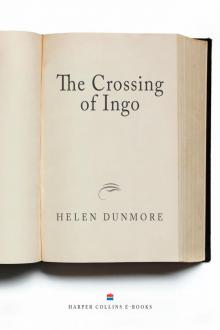 The Crossing of Ingo
The Crossing of Ingo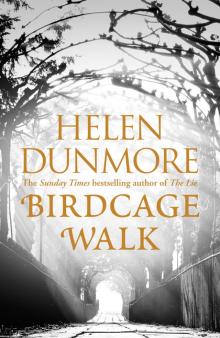 Birdcage Walk
Birdcage Walk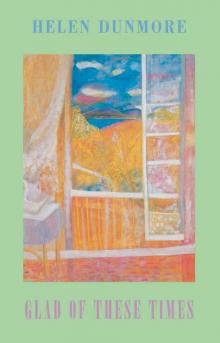 Glad of These Times
Glad of These Times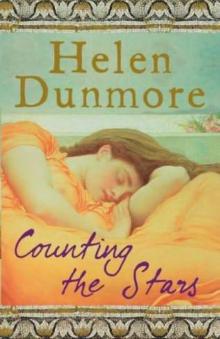 Counting the Stars
Counting the Stars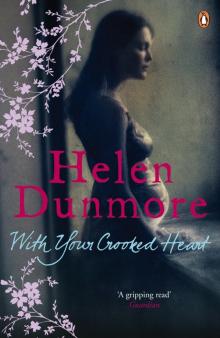 With Your Crooked Heart
With Your Crooked Heart Burning Bright
Burning Bright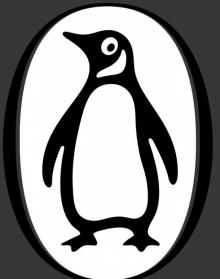 House of Orphans
House of Orphans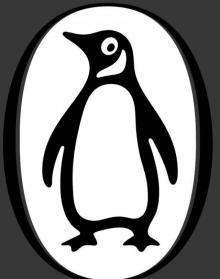 Mourning Ruby
Mourning Ruby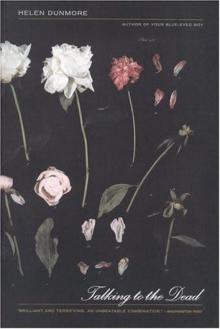 Talking to the Dead
Talking to the Dead Exposure
Exposure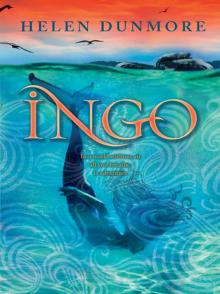 Ingo
Ingo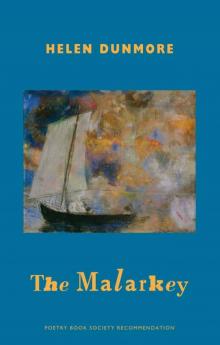 The Malarkey
The Malarkey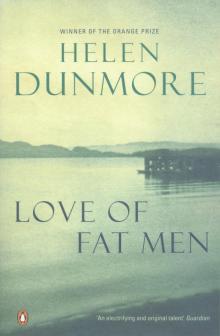 Love of Fat Men
Love of Fat Men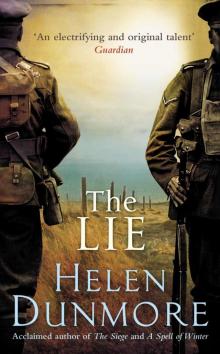 The Lie
The Lie The Siege
The Siege Inside the Wave
Inside the Wave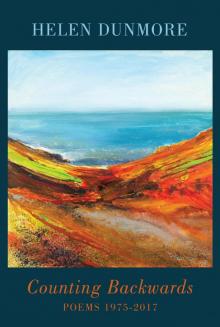 Counting Backwards
Counting Backwards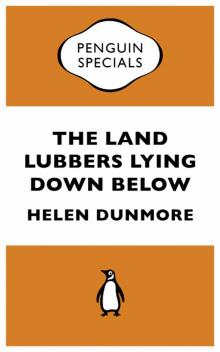 The Land Lubbers Lying Down Below (Penguin Specials)
The Land Lubbers Lying Down Below (Penguin Specials)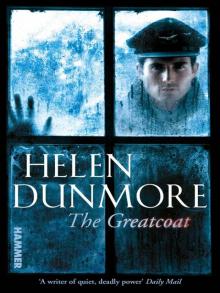 The Greatcoat
The Greatcoat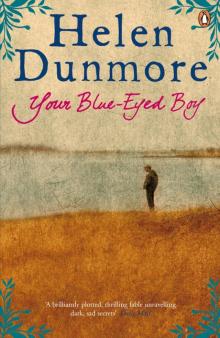 Your Blue Eyed Boy
Your Blue Eyed Boy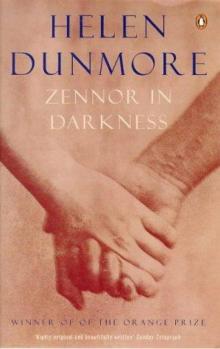 Zennor in Darkness
Zennor in Darkness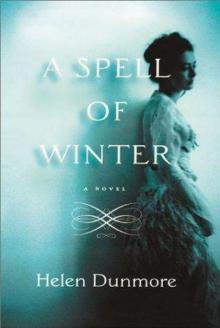 Spell of Winter
Spell of Winter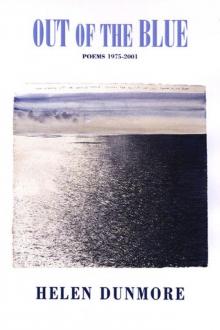 Out of the Blue: Poems 1975-2001
Out of the Blue: Poems 1975-2001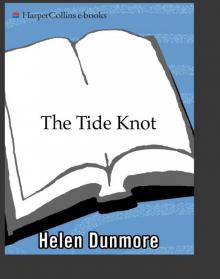 Tide Knot
Tide Knot The Betrayal
The Betrayal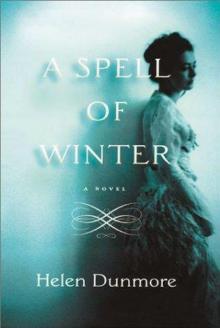 A Spell of Winter
A Spell of Winter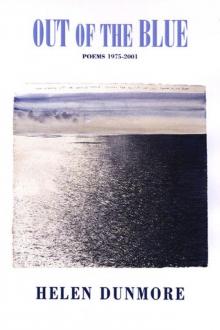 Out of the Blue
Out of the Blue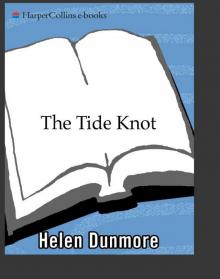 The Tide Knot
The Tide Knot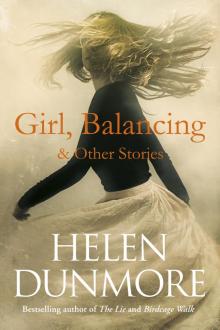 Girl, Balancing & Other Stories
Girl, Balancing & Other Stories Betrayal
Betrayal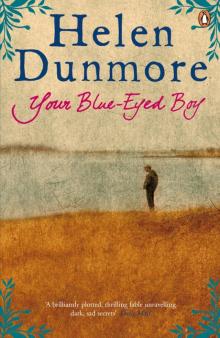 Your Blue-Eyed Boy
Your Blue-Eyed Boy